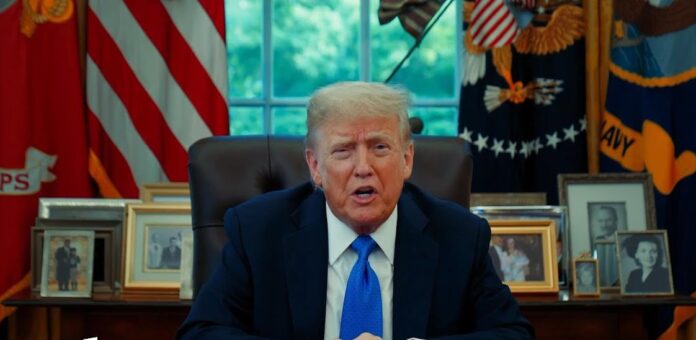Trump’s sweeping ban on 19 countries ignites outrage, targeting war zones and visa overstayers
President Donald Trump unveiled a harsh new travel ban on Wednesday, targeting 19 countries with sweeping restrictions set to take effect this Monday at 12:01 a.m. This policy resurrects a divisive hallmark of his first presidential term and once again places millions of people from conflict-ridden and impoverished nations under intense scrutiny — and outright exclusion from the United States.
Unlike the abrupt 2017 ban that triggered chaos at airports worldwide, this iteration comes with a brief delay, aiming to avoid a repeat of the confusion and protests that marred the initial rollout. Still, the fallout has already begun, sparking fierce condemnation from refugee advocates, international organisations, and allies alike.
Twelve countries face a full ban, meaning citizens will be barred from entering the US altogether. They include Afghanistan, Myanmar, Chad, the Republic of Congo, Equatorial Guinea, Eritrea, Haiti, Iran, Libya, Somalia, Sudan, and Yemen. Seven other nations — Burundi, Cuba, Laos, Sierra Leone, Togo, Turkmenistan, and Venezuela — face heightened restrictions, limiting visa issuance and entry under tighter security measures.
Trump justified his sweeping move by pointing to “deficient” vetting processes in these countries, emphasising high rates of visa overstays. He cited an annual Homeland Security report that flags countries where tourists, business visitors, or students frequently overstay their visas. He bluntly stated, “We don’t want them,” framing the ban as a matter of national security.
The policy drew particular ire for including Afghanistan — a nation that stood alongside the US for two decades during its prolonged war. The ban excludes Afghans holding Special Immigrant Visas, typically those who worked closely with American forces, but the move still sparked outrage. Shawn VanDiver, president of #AfghanEvac, called the ban “a moral disgrace,” saying it disrespects veterans and allies and betrays core American values.
Haiti, long plagued by poverty, hunger, and escalating gang violence in its capital, Port-au-Prince, also appears on the ban list for the first time. Trump accused Haiti of lacking sufficient law enforcement information to prevent threats to US security, citing large numbers of illegal migrants and visa overstayers.
Iran, labelled a “state sponsor of terrorism” by the Trump administration, remains barred except for those already holding visas or on special minority visas. Other Middle Eastern countries on the ban list — Libya, Sudan, and Yemen — suffer ongoing civil wars and fractured governments, with territories controlled by rival factions. Sudan remains engulfed in active conflict, Yemen’s war has stalemated, and Libya’s armed factions continue to battle for control.
Notably, Egypt was left off the list despite the recent terror attack in Boulder, Colorado, where the suspect was an Egyptian visa overstayer. The administration cited the individual’s visa overstay status but did not extend restrictions to Egypt.
The travel ban follows a January 20 executive order from Trump mandating the State and Homeland Security departments, along with intelligence agencies, to report on countries with “hostile attitudes” toward the US or that present security risks. It marks a continuation of Trump’s aggressive immigration and border policies, with echoes of the infamous 2017 “Muslim ban” that barred travel from seven predominantly Muslim nations.
That earlier ban sparked protests and legal battles, eventually reaching the Supreme Court, which upheld a version of it in 2018. Trump insists the ban is grounded in national security, not religious bias, despite criticism that it targets mostly Muslim-majority countries.
Refugee organisations and human rights groups denounced the latest ban as a cynical political move that scapegoats vulnerable communities. Abby Maxman, president of Oxfam America, condemned the policy, saying it “sows division and vilifies communities seeking safety and opportunity.”
As the ban prepares to take effect, thousands of refugees and migrants face uncertainty and despair. The new restrictions cast a dark shadow over global humanitarian efforts and raise serious questions about America’s role in offering refuge to those fleeing violence and persecution.
